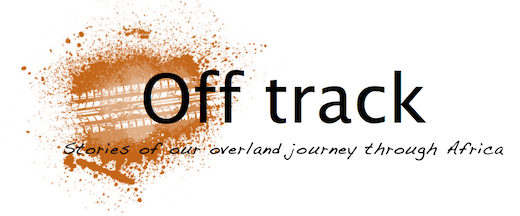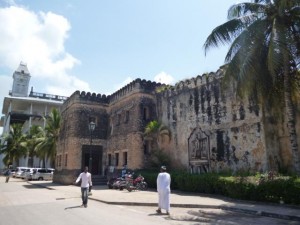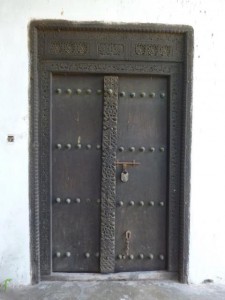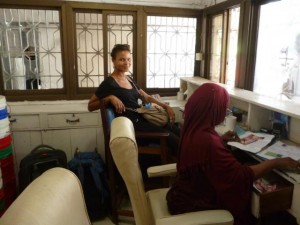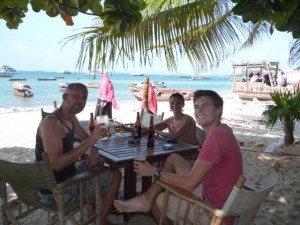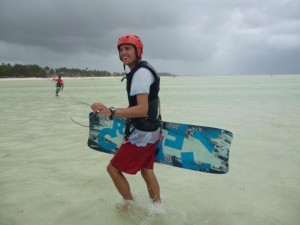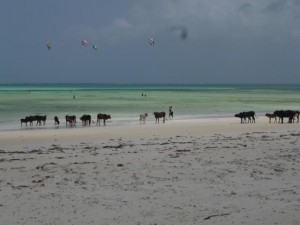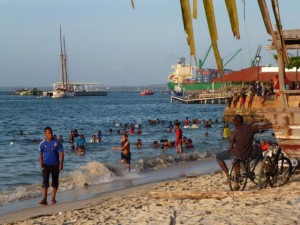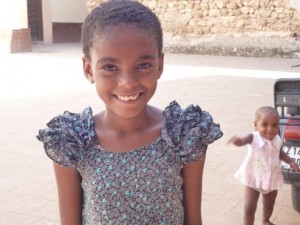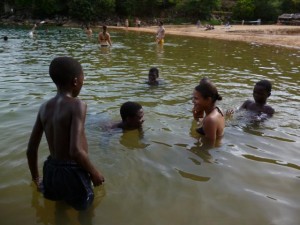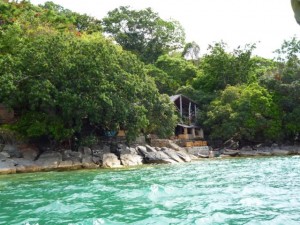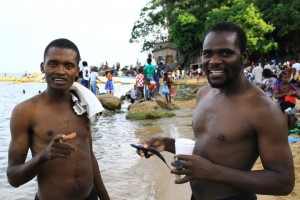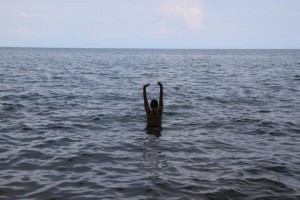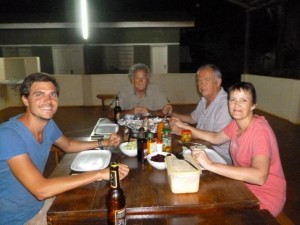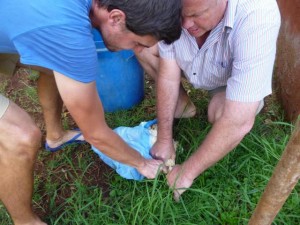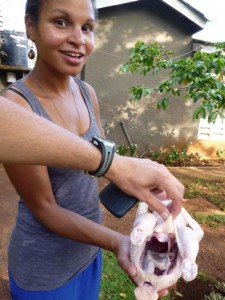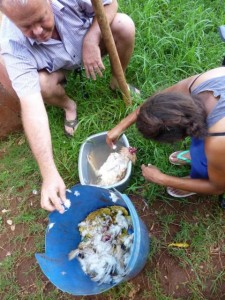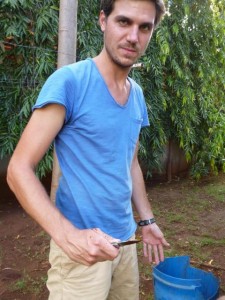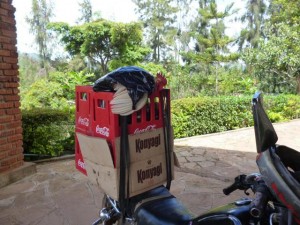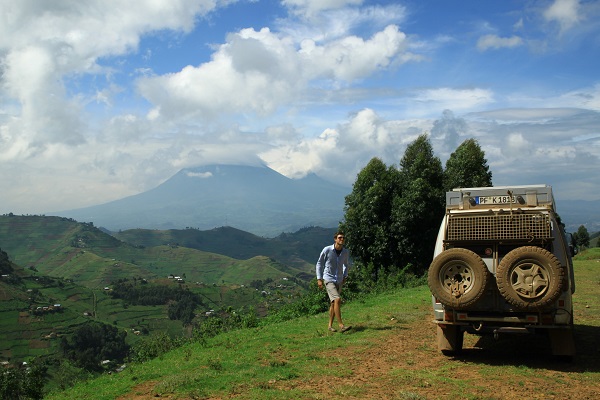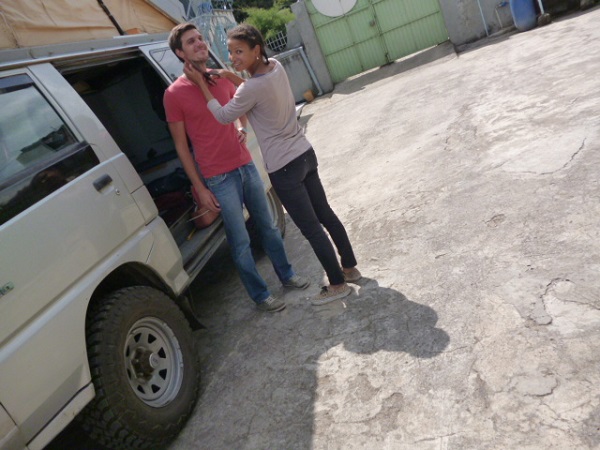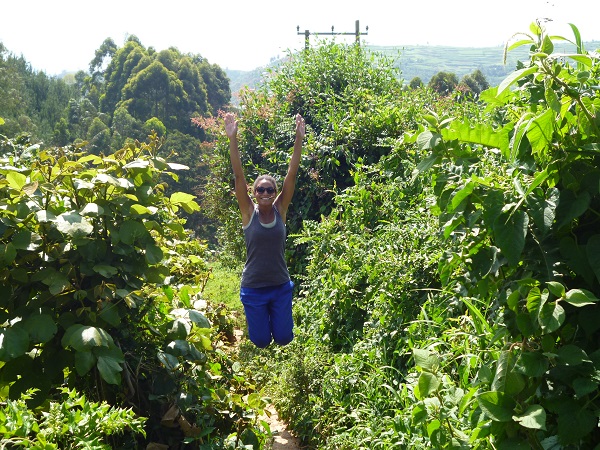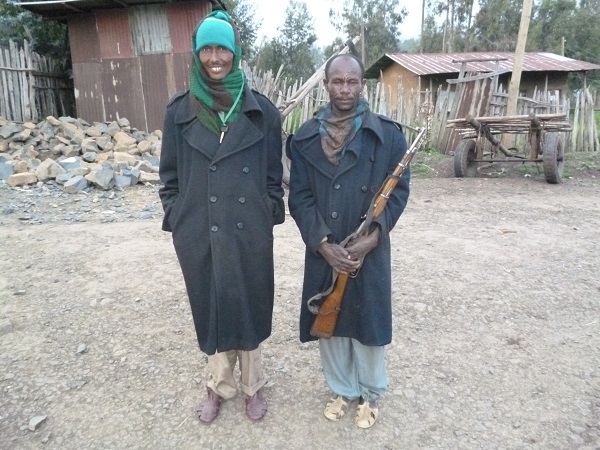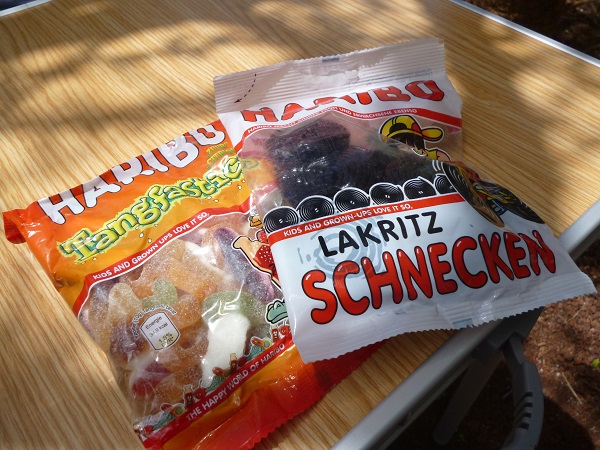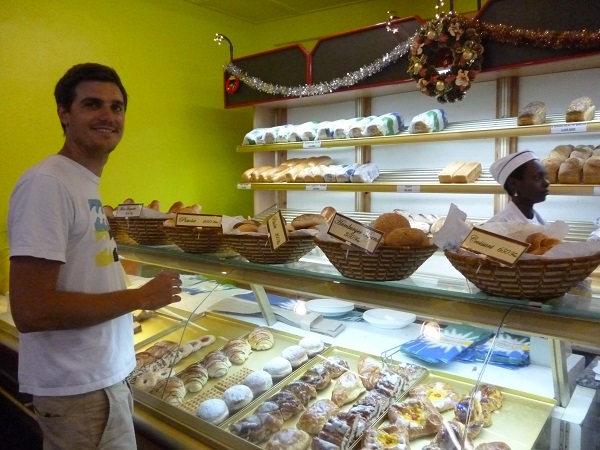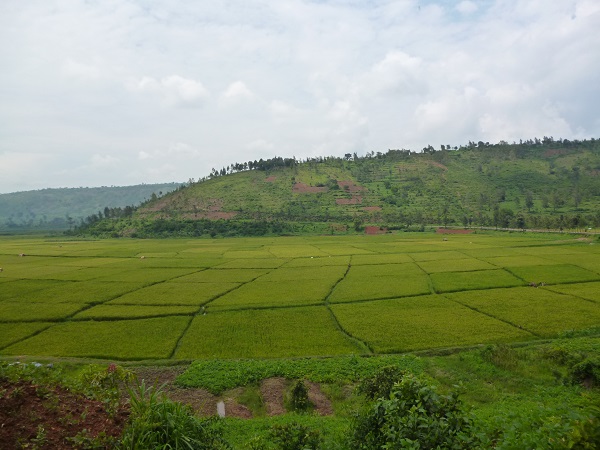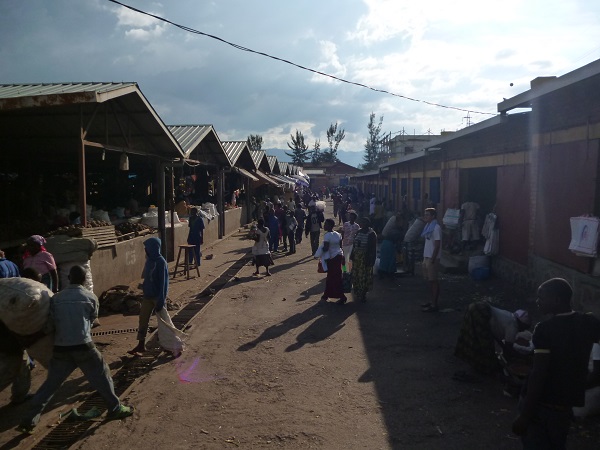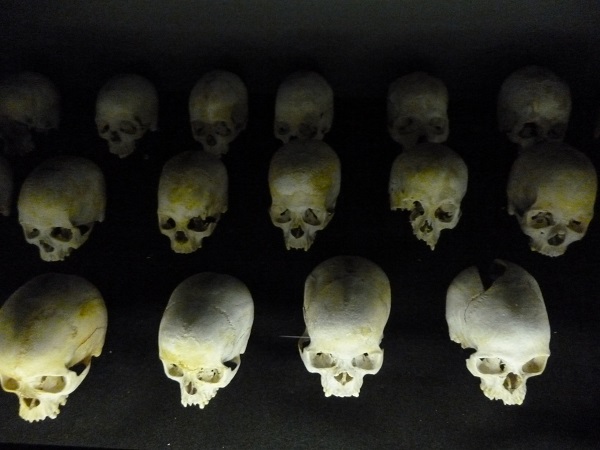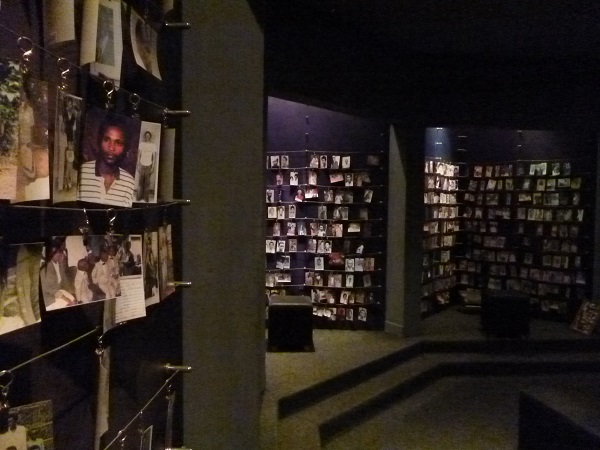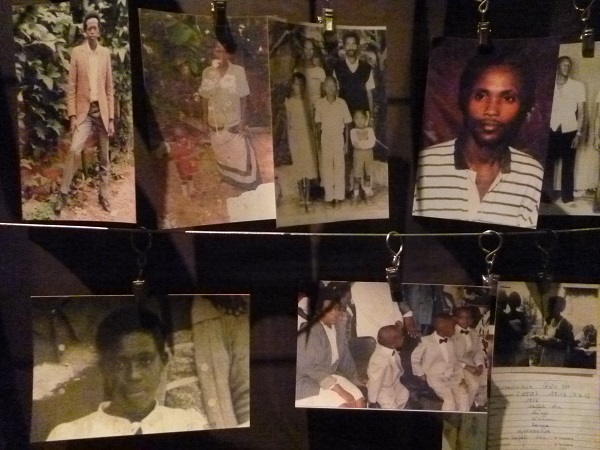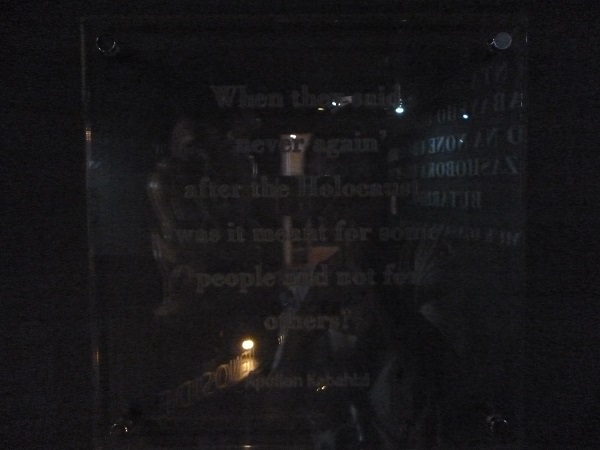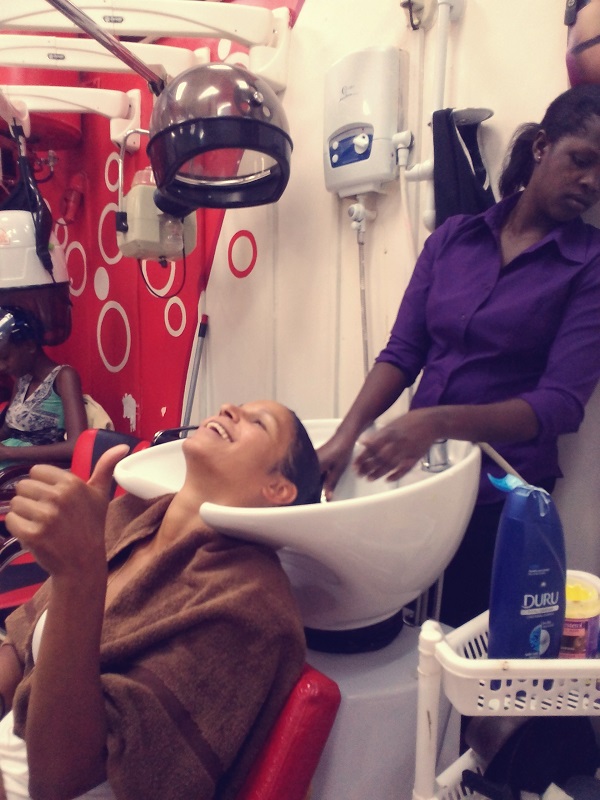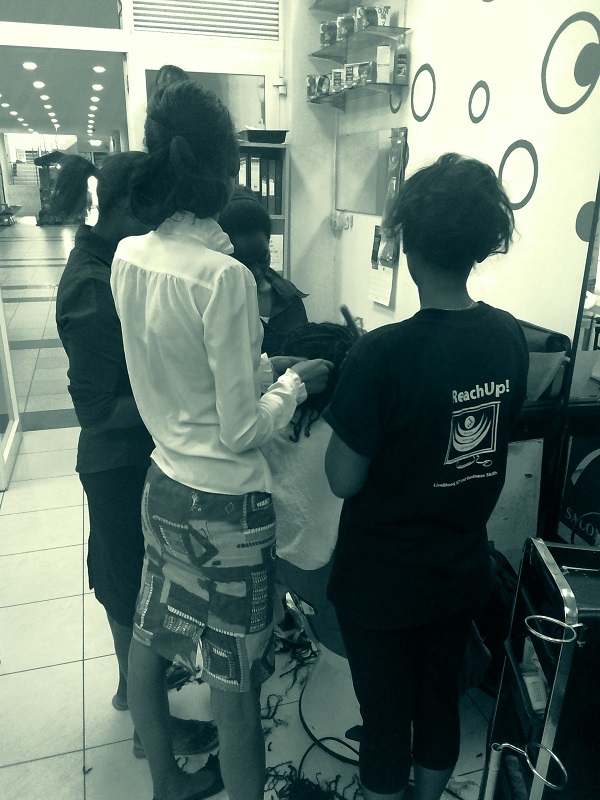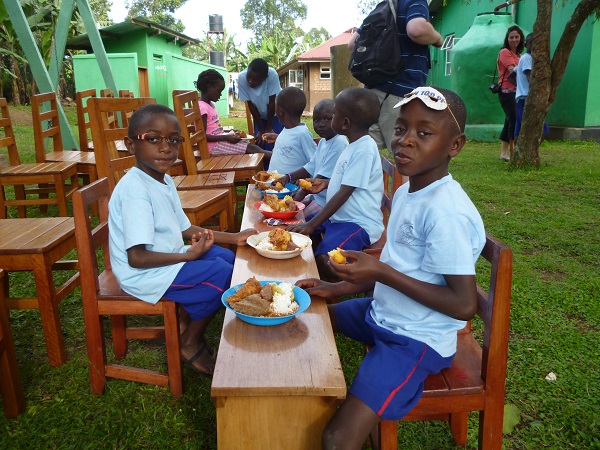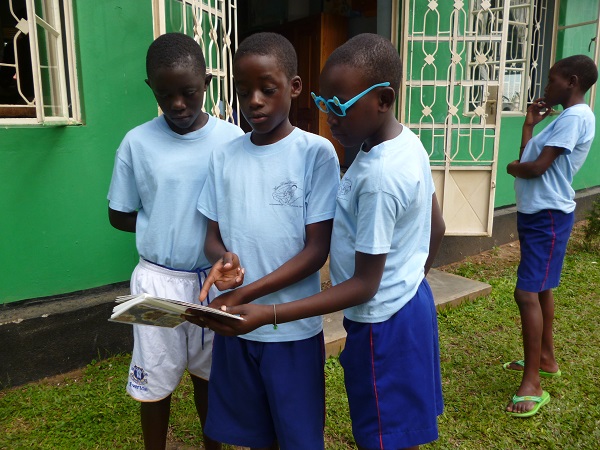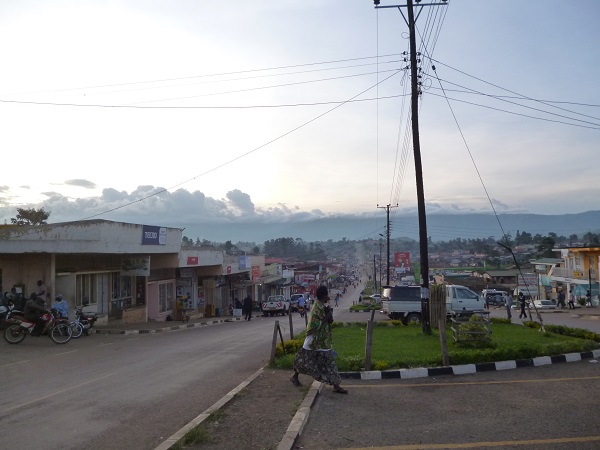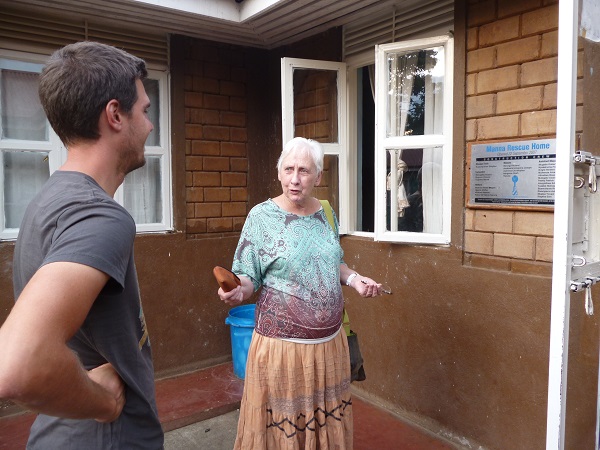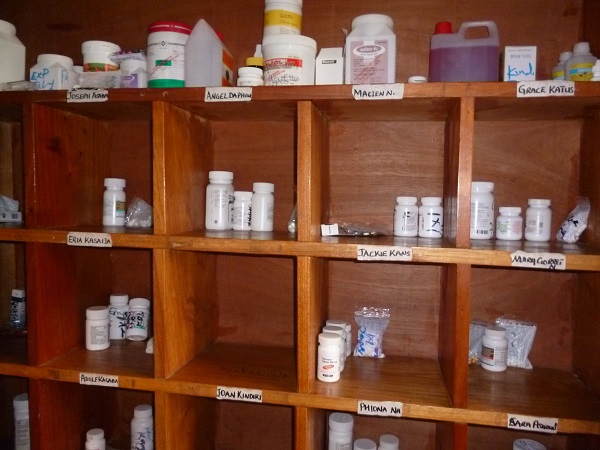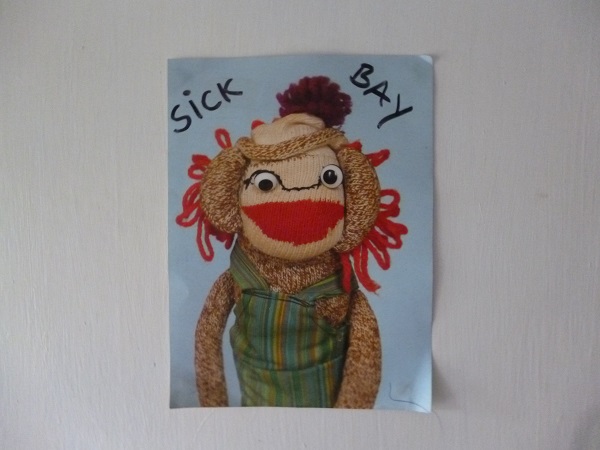Malawi against the December blues
After Rwanda we drove to Tanzania. Our first experience with Tanzania was painted in black, white and fluorescent yellow: the Tanzanian traffic police. Where on Rwandan roads, we saw only a handful of officers, Tanzania had stationed two law enforcers every 30 kilometres. We got stopped everywhere and had to show driving license, insurance and a few times our fire extinguishers. Thanks again Egyptian customs for selling us a brand new one, it impressed the police every time. Apart from two speeding tickets, which we paid ‘without receipt’ to get a discount, we got through without problems. We had a bad conscience about choosing the corrupt way though, but we thought that when you drive 66 where you are allowed 50, there are hardly speed signs and you can’t really see where the village starts or ends, paying under the table is a bit more justifiable. We are still on the cheap, you know 🙂 But to avoid more corruption scenes, we have been driving strictly max 50 and 80 since then, as if we were two school kids yearning for a sticker.
We camped at Manyara National Park a couple of days (one of the excellent top-10 highlights of Africa list Tante G. sent us), did a game drive in the Ngorongoro Crater and drove up the Usambara Mountains. After that we went on to one of our absolute highlights of this journey: a week on Zanzibar including Christmas celebration.
Zanzibar has always been a separate state. It had been in the hands of Oman Arabs for several hundred years and was used for growing and trading spices and slaves between the African mainland and the Arabic world. The slaves came from all over Eastern Africa, even as far inland as Zambia, slaves were captured and transported through Malawi and Tanganyika to Zanzibar. Still today you see Arabic influences everywhere, giving the island a mysterious 1001 night atmosphere, unique in Africa. Only after Tanganyika gained independence from England in the 60s (the Germans had to give up their colony after WWI), Zanzibar and the mainland were combined and called the Republic of Tanzania.
Zanzibar was like a holiday within a holiday. And yes, I am aware of how decadent this sounds. Not only because Zanzibar looks like a perfect tropical island with sandfly-free white sandy beaches, palmtrees and turquoise clear water, but also because we didn’t have our home, the Bushi with us. It is comparable to when you have a day off and you’re at home: you always feel there are things to do. Groceries, laundry, ‘I should finally get this and that fixed’. The same with the bus: we had starting problems, the exhaustion pipe rattled again and the solar electricity didn’t work, again. This week we didn’t have to worry about that, we left the Bushi on the secure parking lot of the YWCA and took the ferry.
Conny almost had a fit when he went bolistic over the ferry ticket rules. First, when buying a ticket, locals had to stay in line at the counter, foreigners were invited into the ticket booth to register and get their ticket. Not a good feeling, to be given priority while all others had to wait. Second, foreigners can’t buy any other ticket than a VIP one, at several times the price of a local ticket, you can’t find any way to get on that ferry on the cheap. We discussed this with our ticket seller, complained, but he was clear about the rules: ‘you are a foreigner, you pay more, and if you don’t like it, don’t go on the ferry. Nobody forces you to.’ And the longer the discussion went on, the more mad Conny got about this inequality, about not being able to bargain, about having no choice. His face turned redder, the veins in his neck grew thicker and he started yelling ‘that this was discrimination! When you people come to Germany we don’t charge you more than locals! This is bullshit!’ and he paced up and down the small aisle behind the vendor chairs. It must have been a funny sight from the outside: three ticket sellers facing their window, ignoring the white man behind them raging in anger and yelling that ‘this wasn’t fair!’, next to him a coloured woman looking embarrassed at the ceiling and the ticket vendors remaining absolutely calm and stoic about the raging man behind them. It was very amusing but also a bit embarrassing theatre, so after 5 minutes I shoved Conny from the booth and bought our overpriced tickets. Embrace Africa.
Zanzibar was a delight and kitesurfers paradise. We stayed in a low budget backpackers lodge right at the beach where we met many great people from France, Slovenia, Portugal, Austria and Germany, some of them we celebrated Christmas with. And: we met our good friend Wouter from the NL again! Conny did a two day Kitesurfing course and was total begeistert, so the man found his new hobby. He already fantasized about buying a Volkswagen T5 in the future and driving to kite spots in Europe…perhaps also with Phillip and Matze…
We were in a village where, according to the Lonely Planet, it should have been backed with people. It wasn’t actually. High season had started but there were very little people and also the bars and restaurants complained about the quietness. This is something we also noticed from the moment we set foot in Egypt: it is quiet, there are only a few backpackers, even less overlanders. It is because of the crisis, turmoil or last years terrorists attacks in Kenya and Zanzibar? Probably a combination of factors.
After Zanzibar we headed for Malawi, where we hoped to find the best possible spot for celebrating New Year’s eve. We were really looking forward to a great night: to celebrate with friends we met along the way, to meet local Malawians and not go home before the sun had risen over. It just had to be epic. Why was this so important to us? Because we had felt quite homesick. It was December, and December is the time to spend with family, to enjoy the cosy Weihnachtsmarkt and the smell of Zimtsterne. In December we have our absolute highlight of the year: the skiing trip with friends, celebrating New Years in the Austrian snow. And we missed that. Here we were in Malawi, which was great, but despite many emails and some phonecalls, our friends and family felt far away. So we needed to dance our blues away and Nkhata Bay was our best bet.
On the way to the lake we had met Trish & Dan, a couple from New Orleans with whom we felt a connection immediately. They were backpacking around the world for one year and had comparable learnings, doubts, highlights and challenges that we faced on the journey. It was nice to talk to ‘equal souls’ on positive as well as negative things about travelling the way that we do.
Nkhata Bay turned out to be a good decision. All backpackers had checked in at the same place, a laid back hostel overlooking the lake. On the 31st, the hostel had organised a boat trip and 50 people squeezed, African style, onto a small boat. We drove to an island where people did snorkelling, playing with local kids and beachvolley. Well, we didn’t do any of the active things, we just got to know the large German-Austrian delegation that consisted of a few students and many NGO believers. You probably know our viewpoint on NGO work: not only do we believe that they aren’t the solutions, we also think it can even be counterproductive because it excuses the government of talking their responsibility of taking care of their people in need. (I’m aware that I state it unnuanced and overgeneralized, but I take this liberty just for the sake of keeping the story short. Happy to discuss further when we are home again). So often when we talk to NGO people there is this awkward moment. They ask what you do, you ask what they do, and sometimes I just can’t put on a appreciative face when they say ‘teaching teachers, but that’s only when they turn up, sometimes my classroom remains empty…’ , or ‘feeding abandoned street dogs’. And when they ask if I’ve ever considered volunteering, I have to be honest. And when I say that I don’t believe in effectiveness of NGOs and that I would never volunteer in Africa, there is this moment of silence, shock (on the other face) and a strange moment where the other silently decides if he/she still wants to talk to me or is walking away.
Everybody, Malawians and tourists, went to a local bar called Kaya Papaya on New Year’s eve. It was packed with people, they played Malawian pop music and there was a good mixture of black and white. The atmosphere was very jolly and everybody was looking for a good time. But soon we noticed something. The Malawian men were all very, very keen for contact and approached us at every occasion, slapping us on the back, saying ‘hey my friend, hey sister, how are you/where you from/etc etc. Great and nice to meet new people, but they were very persistent in ‘claiming’ you. I remember that we talked to Trish & Dan, asking ‘have you also been talking to so many Malawians?’ and they had. In fact, every tourist was approached very pro-actively. You couldn’t stand for one second alone or a new guy approached, sometimes even pushing away an other Malawian competing for contact. Soon we discovered why, when a young man from Malawi pulled the proverbial rabbit from the hat: ‘Hey my friends! You ok? So, what I wanted to ask…’ He paused, looked a bit insecure but decided to pop the question anyway, ‘can you buy me a beer?’ That’s what it was largely about! The whole night we saw Malawians asking tourists to buy them beers and they were determined: even when you said no twice, they had no problem in trying a third time. But eventually I think everybody drew their wallets at least once because at the end of the evening, many Malawians as well as tourists swaggered on their feet. Well, I guess also the marihuana also played a role: even though I’d lived in the ganja-walhalla Amsterdam (but never seen a coffeeshop from the inside), we didn’t have a clue that Malawi is famous for pot. Here ‘Bob Marley cigarettes’ were even cheaper then beer, so many people left the party rather red-eyed.
But don’t get me wrong, there were more Malawians just looking for a great time and NOT asking for stuff. In fact, we felt that the Malawians were very hospitable and enjoyable, fun people.
That morning, the sun was already up, we went home together with Trish & Dan and overlooked the crystal blue Lake Malawi before saying goodbye. We were silent for a few moments, I thought about our friends in the Austrian snow and about those celebrating in Amsterdam clubs or with friends at home, and had that bittersweet feeling of missing friends and family: bitter because you miss them, sweet because you feel how much you care for them. Conny looked at me, smiled, and said ‘this night couldn’t have been any better.’ And I agreed.
Read More